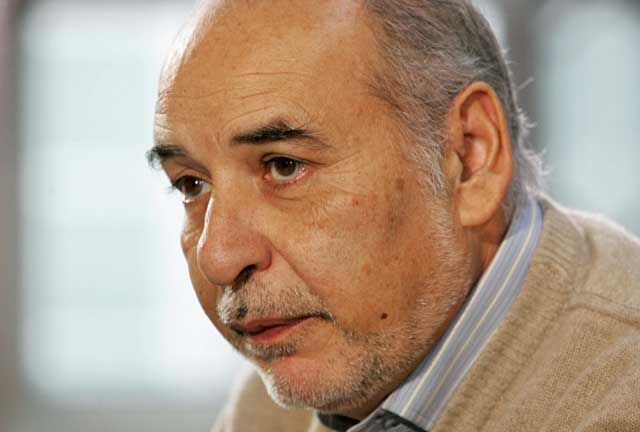A Palace in the Old Village, By Tahar Ben Jelloun, trans. Linda Coverdale

Your support helps us to tell the story
From reproductive rights to climate change to Big Tech, The Independent is on the ground when the story is developing. Whether it's investigating the financials of Elon Musk's pro-Trump PAC or producing our latest documentary, 'The A Word', which shines a light on the American women fighting for reproductive rights, we know how important it is to parse out the facts from the messaging.
At such a critical moment in US history, we need reporters on the ground. Your donation allows us to keep sending journalists to speak to both sides of the story.
The Independent is trusted by Americans across the entire political spectrum. And unlike many other quality news outlets, we choose not to lock Americans out of our reporting and analysis with paywalls. We believe quality journalism should be available to everyone, paid for by those who can afford it.
Your support makes all the difference.It does not generally do to reveal the ending of a novel under review. But when the entire work concerns the ending to which we all come, then surely it is fair to reveal that here is a personal revelation of "the great unmentionable". Tahar Ben Jelloun's considerable body of work has followed the life-cycle in dealing with childhood, sexuality, industrial labour, unemployment, marriage and the family, all narrated in the informal vernacular of an immigrant from North Africa to either Spain or France. Here he deals with "coming home" in the dual sense of returning to "the old village" (in Morocco) and to the world before and after life on earth.
As Mohammed retires from a lifetime of employment, he decides: "I wouldn't like to leave my body in a French hole. It's foolish, what I'm saying, but if I could be certain that my children would often visit my grave... I'd give my body to Lalla LaFrance". It is his uncertainty that settles the matter. "Mohammed dreamed of bringing everyone back together and having a celebration, but since he was sure his children wouldn't come, he decided to fall ill, gravely ill." When this ruse fails, he determines to sink his life's savings into digging a hole in the Moroccan desert from which would grow "the palace" that would unite the family and serve as his memorial.
To him it becomes a folly on the scale of an Alhambra, forever unfinished and a monument to his unexpressed creativity. To the villagers, it is a testament to his sanctity. In returning to his roots, Mohammed is cutting down the tree of his life, shedding the branches of his family. The generation clash is also a culture clash, for the French-born children are grown and flown, marrying out and caring little for their father's traditional world-view. This has to be Mohammed's mausoleum, cursed by both his descendants and the Jinns of antiquity.
Finally, "All had become simple, limpid: whatever or whomever he was dying for had fallen down the well of his childhood; he no longer saw them... no longer heard the sound of their voices". The narrative voice fuses with that of the protagonist. Mohammed – another name for everyman – is drawn from the popular classes and so becomes their spokesman. Yet he understands less than ever before about where he has come from and returned to, while it all – himself included - slips into the desert sands.
"Someone cried out, Gone! Mohammed has gone to God! The village has its saint!... An old woman sitting on a stone spoke up: Wonderful! We haven't any water, we haven't any wheat, we haven't any electricity, but we have a saint!" Appropriately enough, a saint (or marabout) is described as both a holy man and as his shrine. In sacrificing his work, savings and life to his land and family, with whom his religion is so identified, Mohammed is seen as crazy and committed enough to qualify.
Linda Coverdale provides a translation that lives inside Mohammed's head and a connecting voice that is fully convincing. She also provides a useful glossary to elucidate the layering of foreign and domestic, Moroccan and French, Arab and European culture. It is a minor quibble that, as ever, occasional Americanisms jump out ("friends who've done zip" and "people who don't know spit"). Ben Jelloun completes the life cycle with an extended meditation on its final stage, part tragic and part farcical, altogether moving and profound.
Amanda Hopkinson is Professor of Literary Translation at UEA, Norwich
Join our commenting forum
Join thought-provoking conversations, follow other Independent readers and see their replies
Comments